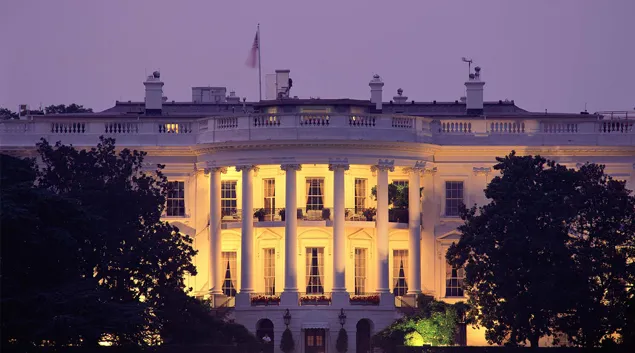
The White House has instructed major drugmakers to bring their medication prices more closely in line with the lowest prices sold in other countries, a “most-favored nation” (MFN) approach the administration has been pushing for months.
President Donald Trump’s White House sent letters to 17 pharmaceutical manufacturers outlining a number of steps the former believes will bring down the prices of prescription drugs. The administration called on manufacturers to provide MFN prices to every Medicare patient and is requiring manufacturers to stipulate that they will not offer other developed nations better prices for new drugs than prices offered in the United States.
Trump also signaled he would provide manufacturers with an avenue to “cut out middlemen” and sell medicines directly to patients, provided they do so at a price no higher than the best price available in developed nations.
The administration said it would use trade policy to support manufacturers in raising prices internationally, provided that increased revenues abroad are reinvested directly into lowering prices for American patients.
The letters inform manufacturers that if they “refuse to step up,” the federal government “will deploy every tool in our arsenal to protect American families from continued abusive drug pricing practices.”
Letters were sent to AbbVie, Amgen, AstraZeneca, Boehringer Ingelheim, Bristol Myers Squibb, Eli Lilly, EMD Serono, Genentech, Gilead, GSK, Johnson and Johnson, Merck, Novartis, Novo Nordisk, Pfizer, Regeneron and Sanofi.
WHAT’S THE IMPACT
The letters follow an executive order, issued in May, directing drugmakers to effectively link drug prices in the U.S. to the cost of drugs abroad.
In a Truth Social post, Trump said the executive order would reduce drug prices between 30% to 80% "almost immediately," and then later posted that prices would be reduced by 59%.
The executive order directs the U.S. Trade Representative and Secretary of Commerce to take action to ensure foreign countries are not engaged in practices that purposefully and unfairly undercut market prices and drive price hikes in the U.S., though it was unclear from the order what action would be taken.
It also instructs the administration to communicate price targets to pharmaceutical manufacturers. If drug manufacturers fail to offer most-favored-nation pricing, the order directs HHS to propose rules that impose this pricing, as well as take "other aggressive measures."
THE LARGER TREND
In April, Trump signed an executive order on prescription drug prices that walked back the "pill penalty" decried by PhRMA in President Joe Biden's Inflation Reduction Act. In that order, HHS Secretary Robert F. Kennedy Jr. was instructed to "work with the Congress to modify the Medicare Drug Price Negotiation Program to align the treatment of small molecule prescription drugs with that of biological products, ending the distortion that undermines relative investment in small molecule prescription drugs, coupled with other reforms to prevent any increase in overall costs to Medicare and its beneficiaries."
Small molecule prescription drugs are those generally taken in pill form. Current law allows the government to negotiate prices for complex biologic, or biotech, drugs after 13 years on the market, but after nine years for drugs taken as pills and capsules.
Yet another executive order from May was meant to speed domestic manufacturing of prescription drugs, directing the Food and Drug Administration to reduce the amount of time it takes to approve domestic pharmaceutical manufacturing plants by eliminating "duplicative and unnecessary requirements."
Email: jlagasse@himss.org
Healthcare Finance News is a HIMSS Media publication.